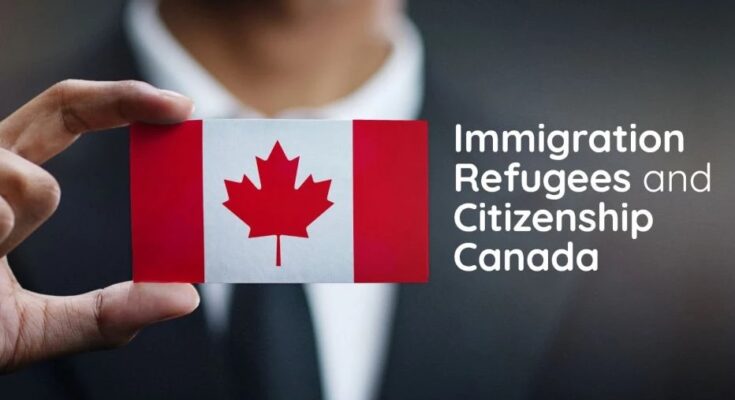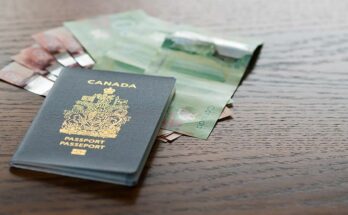Canada is known worldwide for its compassionate approach to resettling refugees. The Canada Refugee Visa and sponsorship programs provide a lifeline to individuals fleeing persecution, violence, and hardship in their home countries. These programs are part of Canada’s commitment to upholding human rights and international humanitarian standards.
Overview of Canada’s Refugee Program
Canada’s refugee program is one of the most comprehensive in the world. The country actively works with international organizations, such as the United Nations High Commissioner for Refugees (UNHCR), to identify and support displaced individuals. Refugees resettled in Canada are given an opportunity to rebuild their lives in a safe, supportive environment.
Purpose of Refugee Visa and Sponsorship
The refugee visa allows individuals to enter Canada as protected persons, while sponsorship programs ensure that they receive financial and emotional support during their transition. This dual approach ensures that refugees not only find safety but also have the resources to thrive in a new country.
Types of Refugee Programs in Canada
Government-Assisted Refugee Program (GAR)
This program is funded entirely by the federal government and targets refugees referred by the UNHCR. Under GAR, refugees receive financial support for essential needs like housing, food, and healthcare for up to a year after arrival.
Private Sponsorship of Refugees (PSR)
Private individuals, organizations, or groups take responsibility for sponsoring refugees through this program. Sponsors must ensure that refugees receive adequate support for their initial settlement period, including housing, clothing, and emotional care.
Blended Visa Office-Referred Program (BVOR)
The BVOR program combines government and private sponsorship efforts. Refugees referred under this program receive partial financial support from the government and additional assistance from private sponsors.
Eligibility Criteria for Refugee Status
Who Qualifies as a Refugee?
Refugees are individuals unable to return to their home country due to a well-founded fear of persecution based on race, religion, nationality, political opinion, or membership in a particular social group.
Ineligibility Conditions
Not everyone is eligible for refugee status. Individuals with criminal records, security risks, or those deemed inadmissible under Canadian law are excluded from the program.
Humanitarian and Compassionate Grounds
In exceptional cases, individuals who do not meet strict refugee criteria may apply under humanitarian and compassionate grounds. This provision considers unique circumstances, such as severe hardship or risk in the applicant’s home country.
Private Sponsorship of Refugees
Role of Sponsorship Agreement Holders (SAHs)
SAHs are organizations authorized by the Canadian government to sponsor refugees. They play a pivotal role in the application process and in ensuring refugees are supported post-arrival.
Community and Group-Based Sponsorship
Local communities, religious groups, and even informal groups of individuals can come together to sponsor refugees. This grassroots approach strengthens local engagement and fosters a sense of shared responsibility.
Financial Responsibilities of Sponsors
Sponsors are required to cover all costs related to the refugee’s initial settlement, including housing, food, and other necessities. They must also provide emotional and logistical support to help refugees adapt to Canadian society.
Government-Assisted Refugee Program
Support Offered by the Government
Under GAR, refugees are provided with monthly allowances for living expenses, healthcare coverage, and assistance with finding housing and employment.
Resettlement Services
The program includes access to settlement services like language training, employment counseling, and cultural orientation programs, ensuring a smoother transition for refugees.
How GAR Differs from PSR
While GAR is government-funded, PSR relies on private sponsors. Both programs aim to achieve the same goal: to provide safety and opportunity for refugees.
Application Process for Refugee Visa
Filing the Asylum Application
The first step involves submitting an application to the Immigration, Refugees, and Citizenship Canada (IRCC) or through the UNHCR for refugee referrals.
Role of the Immigration and Refugee Board of Canada (IRB)
The IRB evaluates claims and determines refugee eligibility. The process includes interviews, background checks, and the assessment of supporting evidence.
Timelines and Documentation
The refugee application process can take several months to complete. Applicants must provide documents proving their identity, risk of persecution, and other relevant details.
Key Benefits of the Canada Refugee Visa
Access to Healthcare and Education
One of the most significant benefits of the Canada Refugee Visa is access to universal healthcare. Refugees are covered under the Interim Federal Health Program (IFHP) until they qualify for provincial healthcare. Additionally, refugee children gain immediate access to Canada’s public education system, which is known for its quality and inclusivity.
Beyond primary and secondary education, refugees also have opportunities for skill development through adult education and language training programs. These resources empower them to integrate into the workforce and contribute to the economy.
Permanent Residency Pathway
The Canada Refugee Visa offers a pathway to permanent residency and, eventually, citizenship. Once refugees are approved, they are considered protected persons, allowing them to apply for permanent resident status. This secure status ensures long-term stability and access to the full benefits of Canadian society.
Integration Support Programs
Canada actively supports the integration of refugees through numerous settlement services. These include mentorship programs, cultural orientation classes, and job placement assistance. The government and non-governmental organizations (NGOs) work together to help refugees feel welcomed and confident as they adapt to their new environment.
Challenges Faced by Refugees in Canada
Navigating Cultural Differences
Adapting to a new culture can be daunting. Refugees may struggle with unfamiliar social norms, customs, and lifestyles. For many, this adjustment period can lead to feelings of isolation and anxiety.
Employment Barriers
While Canada offers opportunities, refugees often face challenges when entering the job market. These include language barriers, lack of Canadian work experience, and difficulties having foreign credentials recognized. Tailored programs and certifications can help bridge this gap, but the process takes time and effort.
Language Proficiency
For non-English or non-French speakers, learning one of Canada’s official languages is essential but challenging. Language training programs like Language Instruction for Newcomers to Canada (LINC) are helpful, but achieving fluency can still take months or even years.
Tips for Successful Sponsorship
Building Community Support
Sponsoring a refugee requires a team effort. Sponsors should seek the support of local communities, religious groups, and organizations to ensure a strong network is available for the refugee’s resettlement. Community involvement makes the transition smoother and helps refugees feel more welcome.
Preparing Financially for Sponsorship
Sponsors must budget carefully, as they are financially responsible for covering the refugee’s living expenses during the sponsorship period. This includes rent, food, clothing, and other essentials. Planning ahead is crucial to meet these obligations without difficulty.
Helping Refugees Settle in Canada
Practical support, such as finding housing, enrolling children in school, and teaching refugees how to navigate public transport, is invaluable. Sponsors can also assist in setting up bank accounts, accessing healthcare, and connecting with local support groups.
Post-Arrival Support for Refugees
Housing and Accommodation
Finding affordable and suitable housing is a top priority for newly arrived refugees. Sponsors often help secure rental accommodations and may even provide temporary housing until long-term arrangements are made.
Employment and Skill Development Programs
Programs designed for newcomers, such as job readiness workshops and vocational training, help refugees build careers in Canada. Many provinces offer sector-specific initiatives tailored to meet labor market demands while utilizing the unique skills refugees bring with them.
Mental Health and Social Support Services
Refugees often experience trauma due to the circumstances that led to their displacement. Access to mental health services, including counseling and therapy, is essential for their well-being. Community centers and NGOs also offer social activities to reduce feelings of isolation.
Stories of Successful Refugee Resettlement
Inspiring Tales of Overcoming Challenges
Canada is home to countless inspiring stories of refugees who have overcome adversity. For example, many refugees have gone on to become entrepreneurs, educators, and leaders in their communities. Their resilience and determination highlight the potential of the refugee sponsorship program.
Contributions of Refugees to Canadian Society
Refugees contribute significantly to Canada’s cultural and economic landscape. They bring diverse perspectives, enrich local communities, and fill critical labor shortages in various industries. In many cases, refugees have also founded successful businesses that create jobs for others.
Building New Lives and Communities
Through access to education, employment, and a supportive network, refugees are able to rebuild their lives and thrive. Their success stories demonstrate the transformative impact of Canada’s refugee programs on individuals and society as a whole.
FAQs on Canada Refugee Visa
Q1: What is the difference between GAR and PSR programs?
A1: The Government-Assisted Refugee (GAR) program is fully funded by the Canadian government, while the Private Sponsorship of Refugees (PSR) program is supported by private sponsors who take financial and emotional responsibility for the refugees they sponsor.
Q2: How long does it take to process a refugee visa application?
A2: Processing times vary but can take anywhere from several months to over a year, depending on the complexity of the case and the applicant’s location.
Q3: Can refugees apply for permanent residency?
A3: Yes, refugees are eligible to apply for permanent residency in Canada once their claim has been approved. This is often the first step toward gaining Canadian citizenship.
Q4: What financial responsibilities do private sponsors have?
A4: Private sponsors must provide financial support for housing, food, clothing, and other necessities during the sponsorship period, typically 12 months.
Q5: Are language classes available for refugees?
A5: Yes, refugees can access free language training programs like Language Instruction for Newcomers to Canada (LINC) to improve their English or French skills.
Conclusion
Canada’s refugee visa and sponsorship programs stand as a beacon of hope for those fleeing unimaginable hardships. By offering safety, support, and opportunities for a better life, Canada showcases its commitment to humanitarian values. Refugees, in turn, enrich Canadian society with their resilience, talents, and cultural diversity. Whether through government programs or private sponsorship, every effort plays a crucial role in building brighter futures for those in need.



